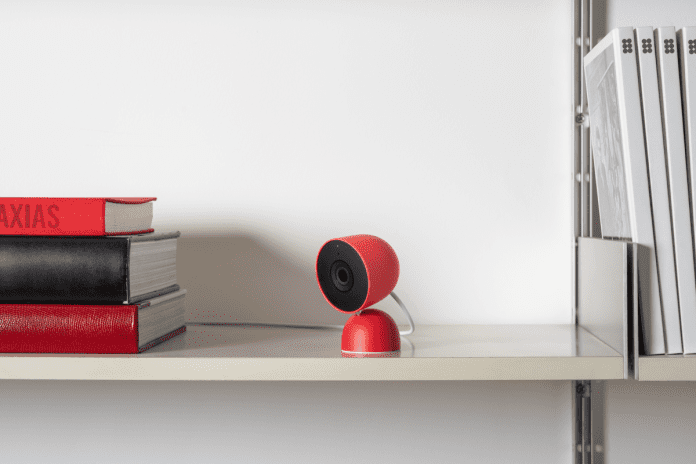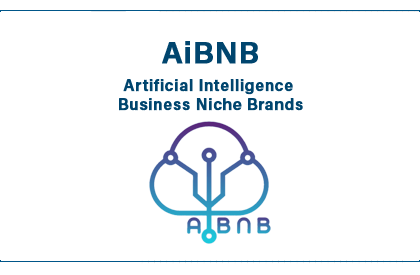As part of its Google Home event on Wednesday, the company unveiled a revamped lineup of Nest devices — Google’s brand of smart home security cameras and doorbells — including a new $149.99 Nest Cam Outdoor, $99.99 Nest Cam Indoor, and $179.99 Nest Doorbell. All devices are designed to showcase Google’s AI assistant Gemini AI in the smart home, and all three come with 2K HDR video, a high-definition format that delivers sharper images than previous models and the highest resolution Google has shipped yet, it says
The company notes it chose this sensor because it would offer the level of fidelity that its Gemini models could use both now and going forward as the technology evolves. Plus, it wanted to ensure that users would be able to zoom and see a certain degree of detail — like a license plate on an unknown vehicle outside their home, perhaps — and balance that with a desire not to consume too much data.

In addition to the 2K HDR, the cameras offer a wider and taller field of view compared with prior devices. The new 152-degree diagonal view allows users to see more of what’s happening. On the doorbell, meanwhile, Google increased both the field of view, now 166 degrees, and the aspect ratio to 1:1, offering a more square image.
This should allow the device to see a more detailed view, including the head and feet of somebody standing at the door, and to the left and right of them, including packages on the ground.

A new sensor and the wider aperture give the cameras better low-light performance, too. Google says the devices allow for 120% more light sensitivity than older models and can stay in full-color mode longer at dawn and dusk. And they’ll still offer infrared vision, which uses heat signatures to see in complete darkness, for nighttime viewing.
Plus, when users are alerted to an event at the door, the preview images will now be zoomed in to show whatever triggered the alert, making it easier to see. Or, if a user wants to have their doorbell’s view permanently zoomed into a particular area, they can now zoom and crop it so it stays fixed.
However, where Google hopes to compete against rivals is with its Gemini capabilities and improved baseline features.
Techcrunch event
San Francisco
|
October 27-29, 2025
For starters, it’s doubling its event history from three to six hours on the free tier. And, for every event that has happened in those six hours, users will get a 10-second video attached. If users want more history, they can choose to upgrade to 10 days, 60 days, or other plans.

Gemini comes into play by making notifications smarter.
Today, people receive dozens of notifications when there are camera events, like people detected, motion, packages delivered, and more. But the burden is currently on the user to figure out what matters and what doesn’t. Gemini, instead, will add more context to these notifications.
For instance, instead of just getting a motion alert, you might receive something that says, “dog jumps out of playpen,” which you can then watch in a zoomed-in video preview.
“That’s what Gemini is going to transform. This experience is all underpinned by what we call ‘semantic scene understanding,’” said Anish Kattukaran, Chief Product Officer at Google Home and Nest, in a press briefing ahead of Wednesday’s announcement. “Because Gemini is multi-modal — and this is a hard problem, by the way…it’s not just simple object detection — but because Gemini is multi-modal, what it can do is it can actually parse through and interpret what is happening in the video,” he continued.

“So now we go from ‘person detected’ or ‘package delivered’ to Gemini interpreting that a FedEx delivery driver is placing a package on the porch and walking away,” Kattukaran explained.
In addition, a Google Home app feature called the “Home Brief” will summarize the past 24 hours’ worth of activity you missed while away. That means you could see which packages were delivered, whether it was the dog that knocked over the coffee table, which people stopped by, or anything else that may have occurred. You can also tell Gemini to make the brief longer or shorter, or to focus only on the kids or the pets, or anything else of interest.

You could ask Gemini what time the kids got home from school, if the landscaper showed up, or if UPS came, for instance.
Gemini will also help more people take advantage of more complex features, like home automations — preset routines that control multiple devices automatically — or better understand their energy use.

Instead of configuring automations manually, you could tell Gemini (even fairly vaguely), that you’d like to feel safer in your home, and the AI could advise you how to set up a routine involving closing blinds and locking doors or creating a simulated presence by automatically turning on and off lights while you’re away.
The cameras come in plastic-free packaging and are available in new colors. The Nest Cam Indoor (Wired, 3rd gen. $99.99) is offered in Snow, Hazel and Berry, while the Outdoor Cam (Wired, 2nd gen., $149.99) is available in Snow and Hazel and is IP56 rated, meaning it’s weatherproof and can withstand dust and heavy rain. The reformulated resin on the outside of the latter is also designed to offer long-term UV protection and better sustainability, Google notes.

For security, a green light will still display when the camera is processing or streaming video, as before. Google additionally offers encrypted video, two-step verification, and commits that your video footage is never used for other purposes, like ad targeting or personalization.
The Nest Doorbell (Wired, 2nd gen, $179.99) comes in Snow, Hazel, and Linen.

Devices are sold at major retailers and on the Google Store. The Nest cameras are available in the U.S., Canada, Australia, Japan, the U.K., Ireland, France, Germany, Italy, Spain, Belgium, Switzerland, Austria, Netherlands, Denmark, Norway, Sweden, and Finland. The new Nest Doorbell will be available in the U.S. and Canada.

To attract a wider consumer base, Google also partnered with Walmart to launch a more affordable doorbell and camera, branded as the onn Indoor Camera Wired ($22.96) and onn Video Doorbell Wired ($49.86). These offer 1080p live view resolution. A paid subscription unlocks additional intelligent features from Gemini.

Alongside this release, the existing Nest Aware subscription is being rebranded as Google Home Premium, but the tiers and pricing will stay the same. (Home Premium Standard is $10/mo, and Home Premium Advanced is $20/mo.) Google Home Premium will also be added to Google One subscriptions at no extra cost. That means if you have the Google AI Pro tier ($20/mo.), Google Home Premium Standard will be included for free, while Google AI Ultra users ($250/mo.) will have access to Google Home Premium Advanced.

Finally, users will no longer have to switch between the Nest mobile app and the Google Home app, as all the functionality has been integrated into the Home app. The Nest app won’t immediately go away, though. Google says it will first work to make sure Nest users can seamlessly transition over. (Read more about the new Home app here.)




